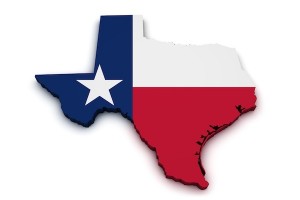Texas Roundup: CancerGene, UT System, Blair Garrou, GE & Baker Hughes

Let’s get caught up with the latest innovation news from Xconomy Texas.
—Austin AI company Cognitive Scale announced Tuesday it has raised $15 million, bringing the total raised for the three-year-old company to $50 million. Investors include Norwest Venture Partners, Intel Capital, Microsoft Ventures, The Westly Group, and USAA. Akshay Sabhikhi, Cognitive Scale’s CEO, says the money will be used to hire staff and expand the startup’s marketing and sales efforts, including throughout the U.S. and Europe. Cognitive Scale’s customers have so far been primarily in healthcare and financial services; Sabhikhi says the company is now branching out into the media, retail, and telecom sectors.
—The US Justice Department has approved the $23 billion merger between GE’s oil and gas division and Houston’s Baker Hughes—approval that would create the world’s second largest energy services company, the Houston Chronicle reported. Each company brings different strengths to the deal: Baker Hughes’ expertise in onshore shale fields and deep-water drilling rigs and GE’s data collection and analytics capabilities. Baker Hughes shareholders will vote on the deal June 30.
—Ommdom, a Dallas-based software company that makes a genetic screening tool called CancerGene Connect, has been purchased by San Francisco’s Invitae (NYSE: NVTA) in a $6 million deal. CancerGene Connect allows patients to upload their family medical history prior to an appointment or procedure. The software can then analyze that data along with current research to assess a patient’s predisposition to disease. The startup, which was part of the Tech Wildcatters accelerator, licensed technology that was first created in the late 1990s at the University of Texas Southwestern Medical Center in Dallas.
—The University of Texas System has come in at number eight among top universities with the most U.S. patents. The ranking, which is published by the National Academy of Inventors and the Intellectual Property Owners Association, uses data from the U.S. Patent and Trademark Office. The University of California System, MIT, and Stanford University took the top three spots. The UT System’s eight academic and six health institutions received 162 patents in 2016, UT says.
—Organizers of the South By Southwest festival have shot down a call from two U.S. senators to move the event out of Texas following the passage of a controversial “sanctuary cities” law, according to media reports. The letter, which was written by Democratic Sens. Robert Menendez of New Jersey and Catherine Cortez Masto of Nevada, was prompted in response to the law—effective September 1—that would prohibit sheriffs or police chiefs from forbidding their officers to ask civilians about their immigration status. “Austin is our home and an integral part of who we are. We will stay here and continue to make our event inclusive while fighting for the rights of all,” festival co-founder and CEO Roland Swenson said in a statement.
And, in case you missed them the first time, here are some stories we recently published:
—San Antonio is leveraging its expertise as the home of the 24th Air Force of the U.S. Cyber Command in order to promote innovation in cybersecurity. The unit of the Air Force is developing a “Cyber Proving Ground” to test security technologies from companies that aren’t traditional defense contractors. The CPG will create more unclassified space, in which a company with a potentially valuable technology can demonstrate it to the Air Force.
—Dallas’s Rise airline company has been acquired by Surf Air of California. The Texas “all-you-can-fly” company launched two years ago offering monthly memberships to its flights to Texas’s major cities. Terms of the deal were not disclosed, but Rise founder and CEO Nick Kennedy will remain with the new company. In September, the company plans to offer flights from Texas to California, as well as to Las Vegas and Scottsdale, AZ.
—Our latest installment of “Five Questions For … ” is with Blair Garrou, co-founder and managing director of Houston venture firm Mercury Fund. Garrou speaks about how he became one of the more prominent advocates for Houston’s tech ecosystem, giving employees enough rope to thrive (or not), and why a career in the law wasn’t for him.
—Lung Therapeutics closed on $14.3 million in venture funding that it will use to continue a clinical trial on its lead drug, a treatment for potentially lethal complications of pneumonia. Bios Partners in Fort Worth, TX, led the Series B round for the Austin-based biotech. Earlier investor UT Horizon Fund also participated. Lung Therapeutics’ lead drug, LTI-01, treats empyema, a buildup of pus in the space between the lungs and the inner surface of the chest wall. This condition often develops after a person has pneumonia.
(30)












